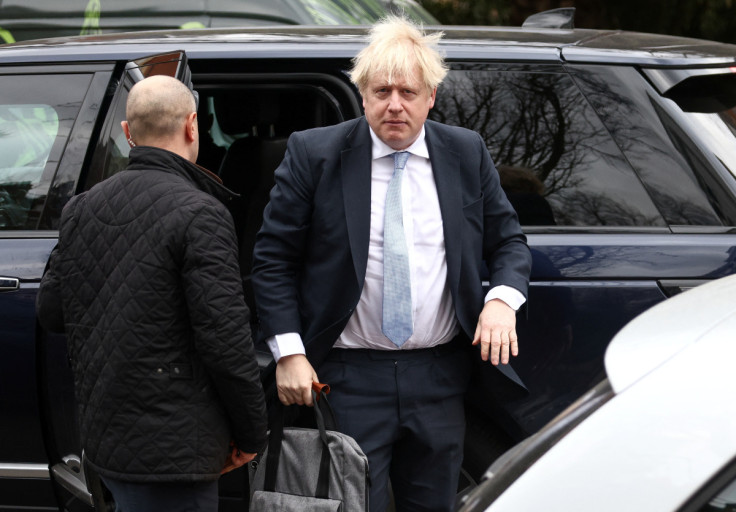Boris Johnson Joins Tory Rebels Demanding Amendments To Rwanda Bill
The bill in its current form is due to be debated and voted on in Parliament today, setting Sunak on a collision course with both factions of his party.

Boris Johnson has backed calls by Conservative rebels to strengthen the Rwanda deportation bill, piling further pressure on Prime Minister Rishi Sunak.
The former prime minister used the social media platform X to endorse an article by a rightwing Tory rebel, Simon Clarke, who described the Rwanda bill as a "flawed measure" and warned he would not support it unless it was amended.
"This bill must be as legally robust as possible – and the right course is to adopt the amendments," Johnson commented.
Johnson's intervention comes at the same time the United Nations Refugee Agency (UNHCR) has concluded that the UK government's new Rwanda bill is not compatible with international law following a legal assessment.
The UNHCR said the modified Rwanda scheme "does not meet the required standards relating to the legality and appropriateness of the transfer of asylum seekers and is not compatible with international refugee law".
The Rwanda bill, created to tackle illegal migration to the UK, was blocked by the Supreme Court in November.
It ruled that deporting asylum seekers to the East African country would violate international human rights laws enshrined in domestic legislation.
The Rwanda plan is at the centre of the government's strategy to "stop the boats" – one of Rishi Sunak's five pledges he made at the beginning of his premiership.
Immediately after the Supreme Court decision, the government insisted it had been working on contingency measures and promised a revised treaty with Rwanda within days, along with emergency legislation in parliament.
So far, Downing Street has insisted the bill as drafted would be sufficient to finally get planes off the ground and it has given no indication that the rebel amendments could be accepted.
However, last night two deputy chairs said t they would support rebel amendments aimed at blocking international human rights laws, and they were joined by prominent Tory MPs Lee Anderson and Brendan Clarke-Smith.
They pointed to a recent poll published in the Telegraph, which suggested that Sunak's constituency was one of 111 where voters wanted asylum seekers removed without the right of appeal.
One senior lawmaker said the rebels had the numbers to defeat Sunak in the final vote.
"There is zero purpose in putting in place a piece of legislation that doesn't work," he said, adding that the rebels only needed half of those who backed the amendments to defeat the government in the final vote.
Meanwhile, moderate Tory MPs have urged Sunak to ignore the rebels from the right of the party who are threatening to vote against the bill.
The bill in its current form is due to be debated and voted on in Parliament today, setting Sunak on a collision course with both factions of his divided party.
Sunak is already dealing with internal unrest following a damaging poll which was published this week.
Yesterday, a YouGov survey of 14,000 respondents forecasted that The Conservatives are on course for a landslide electoral defeat in the upcoming General election, holding on to just 169 seats, while Labour will claim 385.
This would deliver Sir Keir Starmer's party a majority of 120 seats in the upcoming General Election, which has to be held before the end of the year.
A Labour victory of this size would be comparable with their 1997 triumph when Tony Blair won 418 seats and John Major's Conservatives took 165.
According to these latest figures, every Red Wall seat won from Labour by Boris Johnson in 2019 would be lost, and the Chancellor, Jeremy Hunt, will be one of 11 Cabinet ministers to lose their seats.
© Copyright IBTimes 2025. All rights reserved.






















